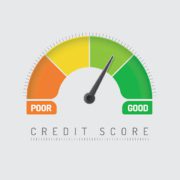Embracing the Journey: Unveiling the Hidden Treasures of Homeownership for Millennials
In a world where experiences often overshadow possessions, Millennials have been hailed as the generation that prioritizes adventure and exploration over material things. However, there’s one treasure that should not be overlooked on the path of life – homeownership. While renting might seem like the flexible choice, owning a home brings forth a trove of benefits that can enrich your life and secure your future.
Let’s embark on a journey to uncover the remarkable advantages that homeownership can offer.
1. Building Equity: Crafting Your Financial Legacy
Picture this: with each mortgage payment you make, you’re not just covering living expenses, but you’re also steadily building equity – a share of ownership in your home. This is like putting money into your own piggy bank, rather than someone else’s. As the value of your property appreciates over time, so does your wealth. This newfound financial foundation can provide you with a safety net during tough times or serve as a launching pad for pursuing other dreams, such as starting a business or further education.
2. Rooted in Stability: Creating a Haven of Your Own
As wanderers at heart, Millennials might fear the sense of being tied down. However, owning a home can provide the stability needed to flourish. A permanent address brings with it a strong sense of community, giving you the opportunity to forge deeper connections with neighbors and create lasting memories. Your home becomes a canvas where you can express yourself, whether it’s through personalizing the interior design or cultivating a vibrant garden. This feeling of belonging can ground you in a fast-paced world and provide a retreat from life’s whirlwinds.
3. Investment in the Future: Your Personal Retirement Plan
Retirement might seem distant, but the choices you make today will shape your tomorrows. By investing in homeownership, you’re essentially creating a personal retirement plan. As you continue making mortgage payments, you’re building a nest egg that can secure your golden years. Imagine living comfortably in your own space, free from the worry of rising rent or the constraints of limited housing options. Your home could even become an asset that generates rental income or appreciates in value, providing financial support well into retirement.
4. Freedom to Innovate: The Canvas for Your Dreams
One of the most liberating aspects of owning a home is the creative freedom it grants you. Unlike renting, where your modifications are often limited, homeownership lets you shape your living space according to your vision. From tearing down walls to create an open-concept layout to designing an eco-friendly oasis, your home becomes a reflection of your personality and aspirations. This level of control can empower you to craft a living environment that nurtures your growth and fosters a sense of fulfillment.
5. Tax Benefits: A Silver Lining
Let’s talk about the financial perks. Homeownership offers tax benefits that can put a little extra padding in your wallet. Depending on your country’s tax laws, mortgage interest, property taxes, and even some home improvement expenses might be eligible for deductions. These deductions can potentially lower your overall tax liability, allowing you to keep more of your hard-earned money. It’s like a reward for investing in both your present and your future.
Homeownership is a journey that goes beyond bricks and mortar. It’s about creating a foundation for your financial well-being, establishing a haven of stability, investing in your retirement, pursuing your dreams, and even enjoying some financial advantages along the way. So, Millennials, as you continue to embrace the world with open arms, remember that having a place to call your own can be one of the most fulfilling adventures of all. Your home is not just a house; it’s a steppingstone towards the life you envision.









 For potential homebuyers, LLPAs can have a significant impact on the affordability of a mortgage. If a borrower has a lower credit score or a smaller down payment, they may be subject to higher LLPAs, which can increase their interest rate and therefore their monthly mortgage payment. Conversely, borrowers with higher credit scores & larger down payments may be able to qualify for lower LLPAs, which can result in a lower interest rate and monthly mortgage payment.
For potential homebuyers, LLPAs can have a significant impact on the affordability of a mortgage. If a borrower has a lower credit score or a smaller down payment, they may be subject to higher LLPAs, which can increase their interest rate and therefore their monthly mortgage payment. Conversely, borrowers with higher credit scores & larger down payments may be able to qualify for lower LLPAs, which can result in a lower interest rate and monthly mortgage payment.
 Determine your monthly income.
Determine your monthly income.
 No down payment required. Qualified borrowers in Michigan can purchase a home up to $417,000 without needing a down payment. This is a significant benefit for those who may not have the funds to make a substantial down payment. In comparison, FHA Loans required 3.5% down and Conventional Loans required 5% down.
No down payment required. Qualified borrowers in Michigan can purchase a home up to $417,000 without needing a down payment. This is a significant benefit for those who may not have the funds to make a substantial down payment. In comparison, FHA Loans required 3.5% down and Conventional Loans required 5% down.